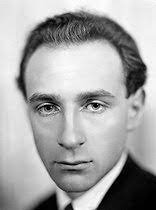
Source: Le blessé, 1937
Translated by: Chris Monier
I saw Joseph Roth at the café
He was drinking a whiskey then a péroxide
A péroxide? But what is that?
We become brave, he says, when we drink it
He passes his glass that the waiter had just prepared
To Michel Matveev, who took a modest sip,
Then he passed his glass to me
Doing so paternally, to please me
And to let me try one time the thing that’s killing him
To me, it tasted fresh, icy, clean, a bit bitter,
But for him, this poison was the long game
He had introduced me to his drink
Not to make me enter his terrible solitude
But to show me the instruments of his dying
To handle them before me without show
As a man faithful to death, who prepares for it daily
With a kind of honor and deliberate pride
The end is here: all that remains is style
And liberty, a sad stoicism with no suprises
A perfect depth, grave and so human
Super human in its calm, in its mortal pact
The body of Roth, his liver, his heart
Tighten and re-align themselves
Around the stream of alcohol that courses through him
And eats at him.
He’s a small man, thin
A master of real elegance
Every visible and invisible fiber of him is fine
Fine and made even finer by the current
Of faces and lights brushing his face
His mustache is fixed
Pale blond, with used little hairs
His modest wrinkles are
Like those on a cardboard mask
A flame also is in him
A quick but broad incandescence
Bigger than his body, a flame of the homeland
Which above all burns here, in his body
But when I left him
With my friends and my wife
With some inevitable happiness,
I saw deep in his blue eyes
An Austrian distress
Distress, human distress
That was asking for pardon,
That was asking me to stay.
1. Joseph Roth was an Austrian Catholic writer who lived in Paris and knew Morhange during the inter-war years. The poem also mentions Michel Matveev, a pseudonym for the artist Joseph Constant (1892-1969).